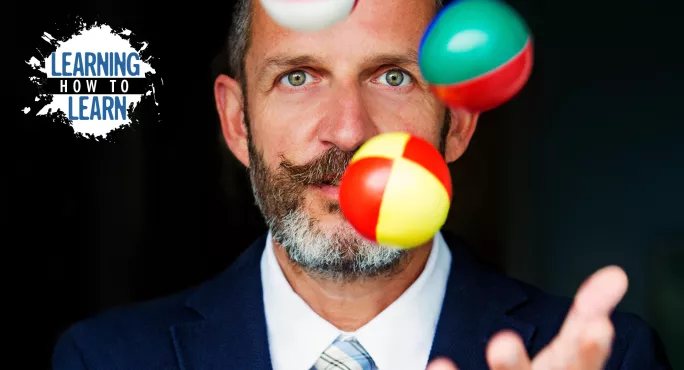Learn to learn: how to get pupils to practise
Share
Learn to learn: how to get pupils to practise
Many students believe that there are certain areas of study that are closed to them. For example, pupils often decide they are just not cut out for mathematics, languages, music or art because they lack the ability to excel.
But even if students feel they are not naturally good at something, they can still become good at it through practice.
This article is part of a series by Professor Barbara Oakley called Learning How To Learn (L2L). A list of all the chapters will be available at this link from 16 April.
Practice makes physical changes in the brain’s neurons. Knowing more about how the brain works, as this course teaches, will help students to practise more effectively.
This video helps motivate students to face and overcome the fears that many subjects produce in them, changing the way they look at their studies.
Special emphasis in this video is placed on the fact that, although maths is abstract, learning maths is much like learning other subjects. Practice is the key to mastery!
How do we persuade kids in the classroom to practise more?
Students are often encouraged to follow their passions. This can cause them to narrow their interests and do only what comes easiest for them. The hardest part of learning something new is often right at the beginning. So, we want to encourage students to persist in their learning through the early, difficult stages.
Practice makes perfect
Remind students that when they were first learning to ride a bike, they often fell down. It hurt. But when they finally got the hang of it, it became fun.
All sorts of subjects, including maths and language study, are like learning to ride a bike. The fun part comes later. A little bit of practice every day can eventually lead to success and enjoyment.
Try to encourage students to not only follow their passions but to broaden their passions - to do what doesn’t seem easy. This will help them as they mature and begin to think of their careers.
Those who like maths, for example, should also be encouraged in art, music and writing. Those who are more literary can be encouraged to be more analytical.
Businesses and institutions nowadays especially need people who are multi-talented.
This article is part of a series by Professor Barbara Oakley called Learning How To Learn (L2L). A list of all the chapters will be available at this link from 16 April.
Notes by Professor Barbara Oakley and ESIC Business and Marketing School. Videos reproduced with kind permission of the Arizona State University and Professor Barbara Oakley.
For more information, see Learning How to Learn: How to Succeed in School Without Spending All Your Time Studying; A Guide for Kids and Teens.




